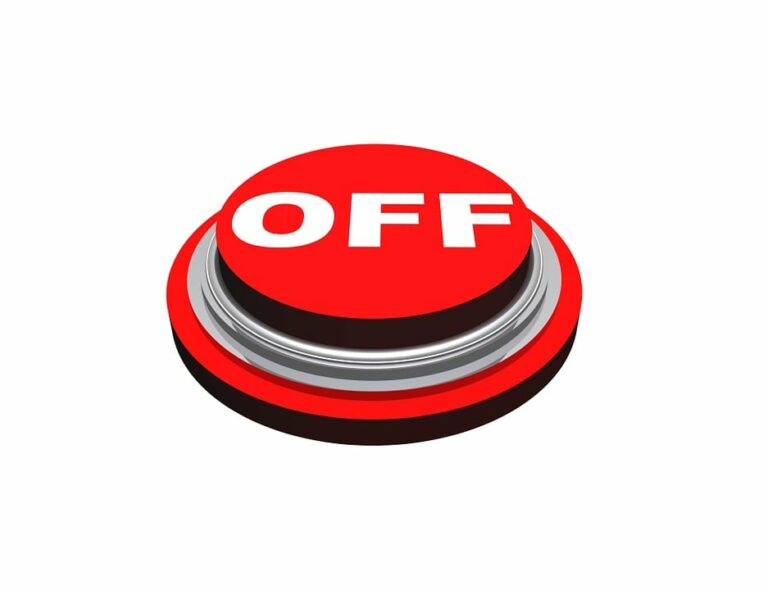Name Brand Rims For Cars: An Ultimate Guide to Performance, Style, and Value
Name Brand Rims For Cars: An Ultimate Guide to Performance, Style, and Value cars.truckstrend.com
In the intricate world of automotive customization and performance enhancement, few components wield as much influence as rims. More than just a circular piece of metal holding your tires, rims (often interchangeably called wheels) are a critical interface between your vehicle and the road. While countless generic options exist, "name brand rims" stand apart. These aren’t just accessories; they are meticulously engineered components produced by reputable manufacturers renowned for their quality, innovation, and design prowess. Choosing name brand rims for your car is an investment – an investment in aesthetics, performance, safety, and ultimately, your driving experience. This comprehensive guide will delve into every facet of name brand rims, helping you make an informed decision that elevates your vehicle to new heights.
Why Choose Name Brand Rims? The Undeniable Advantages
Name Brand Rims For Cars: An Ultimate Guide to Performance, Style, and Value
Opting for rims from established, reputable brands offers a multitude of benefits that generic or replica wheels simply cannot match. Understanding these advantages is key to appreciating their true value.
1. Superior Quality and Durability
Name brand manufacturers adhere to stringent quality control standards, often exceeding industry requirements. They invest heavily in research and development, utilizing advanced materials and manufacturing processes like high-pressure casting, flow-forming, and true forging. This results in rims that are not only stronger and more resistant to impact, bending, and cracking but also lighter, contributing to better performance.
2. Enhanced Performance Benefits
The weight of a rim significantly impacts a vehicle’s performance. Lighter rims, often a hallmark of name brands, reduce "unsprung mass" – the weight not supported by the suspension. This reduction leads to:
- Improved Handling: The suspension reacts more quickly and effectively to road imperfections.
- Faster Acceleration: Less rotational inertia means the engine has less mass to spin up.
- Shorter Braking Distances: Less mass to stop means more effective braking.
- Better Fuel Efficiency: While marginal, lighter wheels can contribute to slight fuel savings.

3. Unparalleled Aesthetics and Style
Name brand rims are often at the forefront of design trends, offering a vast array of styles, finishes, and sizes. From classic multi-spoke designs to aggressive concave profiles, polished chrome to matte black, these brands provide options that can dramatically transform your vehicle’s appearance, reflecting your personal style and enhancing its curb appeal. Their designs are not just about looks; they are often engineered for optimal airflow to brakes and structural integrity.
4. Safety and Reliability
Safety is paramount. Reputable rim manufacturers conduct rigorous testing, including impact tests, fatigue tests, and corrosion resistance tests, to ensure their products meet or exceed safety certifications like JWL (Japan Light Alloy Wheel Standard), VIA (Vehicle Inspection Association), and TUV (Technischer Überwachungsverein in Germany). This commitment to safety means you can trust that your rims will perform reliably under various driving conditions, reducing the risk of catastrophic failure.
5. Warranty and Customer Support
Established brands stand behind their products. Most name brand rims come with comprehensive warranties covering manufacturing defects, offering peace of mind. Furthermore, these companies typically have robust customer service departments that can assist with fitment questions, maintenance advice, and warranty claims, a stark contrast to many generic alternatives.
6. Resale Value
While not a primary driver for purchase, high-quality name brand rims can positively impact your vehicle’s resale value or make it more appealing to potential buyers, especially in the enthusiast market.
Decoding the Top Name Brand Rim Manufacturers
The market for name brand rims is diverse, with manufacturers specializing in different segments, from motorsport to luxury. Here’s a look at some of the industry’s leading names:
- BBS (Germany): A legendary name synonymous with motorsport and high-performance. Known for their intricate mesh designs, forged construction, and unparalleled engineering, BBS wheels are a top choice for enthusiasts seeking performance and heritage.
- OZ Racing (Italy): With a strong presence in Formula 1 and rally racing, OZ Racing offers a wide range of performance-oriented wheels for street and track use, known for their lightweight designs and Italian flair.
- Enkei (Japan): A global leader, Enkei produces wheels for various applications, from OEM supply to aftermarket performance. Their "M.A.T." (Most Advanced Technology) flow-forming process offers excellent strength-to-weight ratios at a competitive price point.
- RAYS (Volk Racing, Gram Lights – Japan): Renowned for their ultra-lightweight forged wheels (Volk Racing) and high-quality cast wheels (Gram Lights), RAYS Engineering is a benchmark in the JDM (Japanese Domestic Market) performance scene.
- HRE Performance Wheels (USA): At the pinnacle of luxury and performance, HRE specializes in custom-tailored, forged wheels. Each set is made to order, offering unparalleled customization, strength, and exclusivity.
- Forgeline Motorsports (USA): Similar to HRE, Forgeline is celebrated for its high-performance, custom-forged wheels, popular in road racing and high-end street applications.
- Vossen Wheels (USA): Known for their striking, often concave designs and emphasis on vehicle aesthetics, Vossen offers a broad range of cast, flow-formed, and forged wheels primarily for luxury and sport sedans/SUVs.
- Method Race Wheels (USA): A dominant force in off-road and truck applications, Method Race Wheels are engineered for extreme durability and performance in rugged environments, recognized by their distinctive styling.
- Rotiform (USA): Popular in the stance and custom car scene, Rotiform creates unique and often aggressive designs, including custom forged wheels that push aesthetic boundaries.
This list is just a snapshot; many other reputable brands like American Racing, Konig, Fifteen52, and Work Wheels also offer excellent products.
Key Considerations Before Buying Name Brand Rims
Purchasing new rims is more than just picking a design you like. Several critical factors must be carefully considered to ensure compatibility, safety, and optimal performance.
1. Vehicle Compatibility (Fitment)
This is the single most important factor. Rims must perfectly match your vehicle’s specifications:
- Bolt Pattern (PCD – Pitch Circle Diameter): The number of lug holes and the diameter of the circle they form (e.g., 5×114.3mm). Must match exactly.
- Diameter: The wheel’s overall size (e.g., 18-inch, 20-inch).
- Width: How wide the wheel is (e.g., 8.5 inches, 10 inches). Must be compatible with your chosen tire size and vehicle’s fender clearance.
- Offset (ET): The distance from the wheel’s mounting surface to its true centerline. A positive offset means the mounting surface is towards the front face of the wheel, a negative offset means it’s towards the back. Incorrect offset can cause rubbing, affect handling, and put undue stress on wheel bearings.
- Center Bore: The hole in the center of the wheel that fits over the vehicle’s hub. It should either match your hub’s diameter exactly or be larger, requiring hub-centric rings for a precise fit.
2. Material and Construction Type
The manufacturing process significantly impacts a rim’s weight, strength, and cost:
- Cast Wheels: Most affordable. Molten aluminum is poured into a mold. Can be gravity cast (simplest) or low-pressure/counter-pressure cast (stronger, less porous). Heavier and less strong than other types.
- Flow-Formed (Rotary Forged/Semi-Forged) Wheels: A hybrid process. The rim barrel is spun and heated while rollers press and stretch the aluminum, creating a denser, stronger, and lighter structure than traditional casting. Excellent balance of cost, strength, and weight.
- Forged Wheels: Most expensive but also the strongest and lightest. A solid block of aluminum (billet) is subjected to immense pressure, compacting the metal’s grain structure. Can be monoblock (single piece), 2-piece (barrel and face bolted together), or 3-piece (inner barrel, outer barrel, and face bolted together). Ideal for performance applications.
3. Driving Style and Purpose
- Daily Driver: Flow-formed wheels offer a great balance of durability, weight, and cost. Cast wheels are also an option for those on a tighter budget.
- Track/Performance Driving: Forged wheels are highly recommended for their strength and weight savings, crucial for reducing unsprung mass and improving lap times.
- Off-Roading/Trucks: Brands like Method Race Wheels specialize in heavy-duty cast or forged wheels designed to withstand harsh impacts and extreme conditions.
4. Budget
Name brand rims range widely in price. Set a realistic budget, understanding that the investment in quality often pays off in longevity, performance, and peace of mind. Remember to factor in the cost of tires, lug nuts, and professional installation.
5. Tire Compatibility
Your chosen rims will dictate tire size. Ensure the rim width is appropriate for the desired tire width. Consult a professional to avoid "stretched" or "bulged" tire fitments, which can be unsafe or impact performance.
6. Maintenance and Care
Consider the finish (painted, machined, polished, chrome) and how easy it will be to clean and maintain. Some finishes are more durable and easier to care for than others.
The Buying Process: From Selection to Installation
Once you’ve considered the key factors, the buying process involves several steps:
- Thorough Research: Use online configurators provided by wheel manufacturers or retailers. These tools allow you to visualize different wheels on your specific vehicle. Read reviews, browse enthusiast forums, and look at photos of similar cars with your desired wheels.
- Consult Experts: Visit reputable local wheel and tire shops. Their expertise is invaluable for verifying fitment, discussing tire options, and providing installation services.
- Purchase from Authorized Dealers: To ensure authenticity and warranty coverage, always buy name brand rims from authorized dealers, reputable online retailers, or directly from the manufacturer. Beware of deals that seem "too good to be true," as counterfeits are a real problem in the aftermarket wheel industry.
- Professional Installation: While some DIY enthusiasts might attempt installation, professional mounting and balancing are highly recommended. Shops have specialized equipment to mount tires without damaging the rims, balance them correctly for a smooth ride, and torque lug nuts to factory specifications, which is crucial for safety.
- Post-Installation Check: After driving a short distance (e.g., 50-100 miles), it’s a good practice to re-torque your lug nuts. Wheels can sometimes settle, and a re-torque ensures they remain securely fastened. Also, consider a wheel alignment check, as changing wheel dimensions can sometimes subtly affect alignment.
Potential Challenges and Solutions
Even with name brand rims, challenges can arise. Being aware of them helps in mitigation.
- High Initial Cost: Name brand rims are an investment.
- Solution: Consider flow-formed options for a better balance of performance and price. Many retailers offer financing. Remember, this is a long-term investment in your vehicle.
- Fitment Complexity: Getting the right offset and width can be confusing.
- Solution: Leverage online fitment guides, consult with experienced professionals, and double-check all specifications before purchasing.
- Damage from Road Hazards: Potholes and curbs are a constant threat.
- Solution: Drive defensively, avoid potholes, and be mindful of curbs. Consider protective coatings (like ceramic coatings) for easier cleaning and minor protection. Rim repair specialists can often fix minor bends or curb rash.
- Counterfeit Products: The popularity of name brand rims has led to a market for cheap, unsafe replicas.
- Solution: Always purchase from authorized dealers or highly reputable sources. Be wary of unusually low prices or sellers who cannot provide proof of authenticity.
Price Table: Representative Name Brand Rim Costs (Per Wheel)
Please note: These prices are estimates and can vary significantly based on specific design, finish, size, construction method, market demand, and retailer. Prices are per wheel.
| Brand | Typical Construction Type | Price Range (Per Wheel) | Key Feature / Target User |
|---|---|---|---|
| Enkei | Cast / Flow-Formed (MAT) | $200 – $600 | Excellent value, performance-oriented, reliable |
| OZ Racing | Cast / Flow-Formed / Forged | $300 – $1,500+ | Motorsport heritage, diverse styles, quality |
| BBS | Flow-Formed / Forged | $500 – $2,500+ | Premium performance, iconic designs, lightweight |
| RAYS (Volk Racing) | Forged | $800 – $2,000+ | Ultra-lightweight, high-strength, JDM performance benchmark |
| Vossen | Cast / Flow-Formed / Forged | $400 – $2,500+ | Aesthetic focus, luxury styling, wide range of designs |
| Method Race Wheels | Cast / Forged | $250 – $900+ | Off-road durability, truck/SUV applications, rugged aesthetics |
| HRE Performance | Forged | $1,500 – $5,000+ | Bespoke, ultra-high-performance, luxury, custom tailoring |
| Forgeline Motorsports | Forged | $1,200 – $4,000+ | Track-focused, custom-engineered, extreme durability |
Note: Prices do not include tires, mounting, balancing, or shipping.
Frequently Asked Questions (FAQ)
Q1: Are name brand rims worth the extra cost?
A1: Absolutely. The investment pays off in superior quality, durability, safety, performance benefits (lighter weight, better handling), and often better aesthetics and resale value compared to generic or replica wheels.
Q2: How do I know what size rims fit my car?
A2: You need to know your car’s bolt pattern, diameter, width, offset, and center bore. Your vehicle’s owner’s manual or a quick online search for your specific make, model, and year can provide this information. Reputable wheel retailers and manufacturers also have fitment guides.
Q3: What’s the difference between cast, flow-formed, and forged rims?
A3:
- Cast: Molten metal poured into a mold. Most affordable, but heavier and less dense.
- Flow-Formed: Combines casting with a spinning/pressure process on the barrel. Stronger and lighter than cast, at a mid-range price.
- Forged: Made from a solid billet of metal under extreme pressure. Strongest, lightest, and most expensive. Ideal for performance.
Q4: Can I install new rims myself?
A4: While physically possible, professional installation is strongly recommended. Shops have specialized equipment for mounting tires without damage, precise balancing for a smooth ride, and torque wrenches to ensure lug nuts are tightened correctly for safety.
Q5: Do name brand rims improve performance?
A5: Yes, especially lighter-weight flow-formed or forged rims. Reducing unsprung mass improves acceleration, braking, and handling responsiveness. They can also aid in brake cooling.
Q6: How do I maintain my name brand rims?
A6: Regular cleaning with pH-neutral wheel cleaners is essential to prevent brake dust and road grime from damaging the finish. Avoid harsh chemicals or abrasive brushes. For added protection, consider applying a ceramic coating or wax.
Conclusion
Choosing name brand rims for your car is a significant decision that transcends mere aesthetics. It’s about making a conscious choice for quality, performance, safety, and longevity. By understanding the advantages, knowing the reputable manufacturers, and carefully considering the technical aspects of fitment and construction, you can confidently select rims that not only enhance your vehicle’s appearance but also genuinely improve its driving dynamics and overall value. It’s an investment that pays dividends every time you get behind the wheel, offering a blend of style, engineering excellence, and peace of mind.




